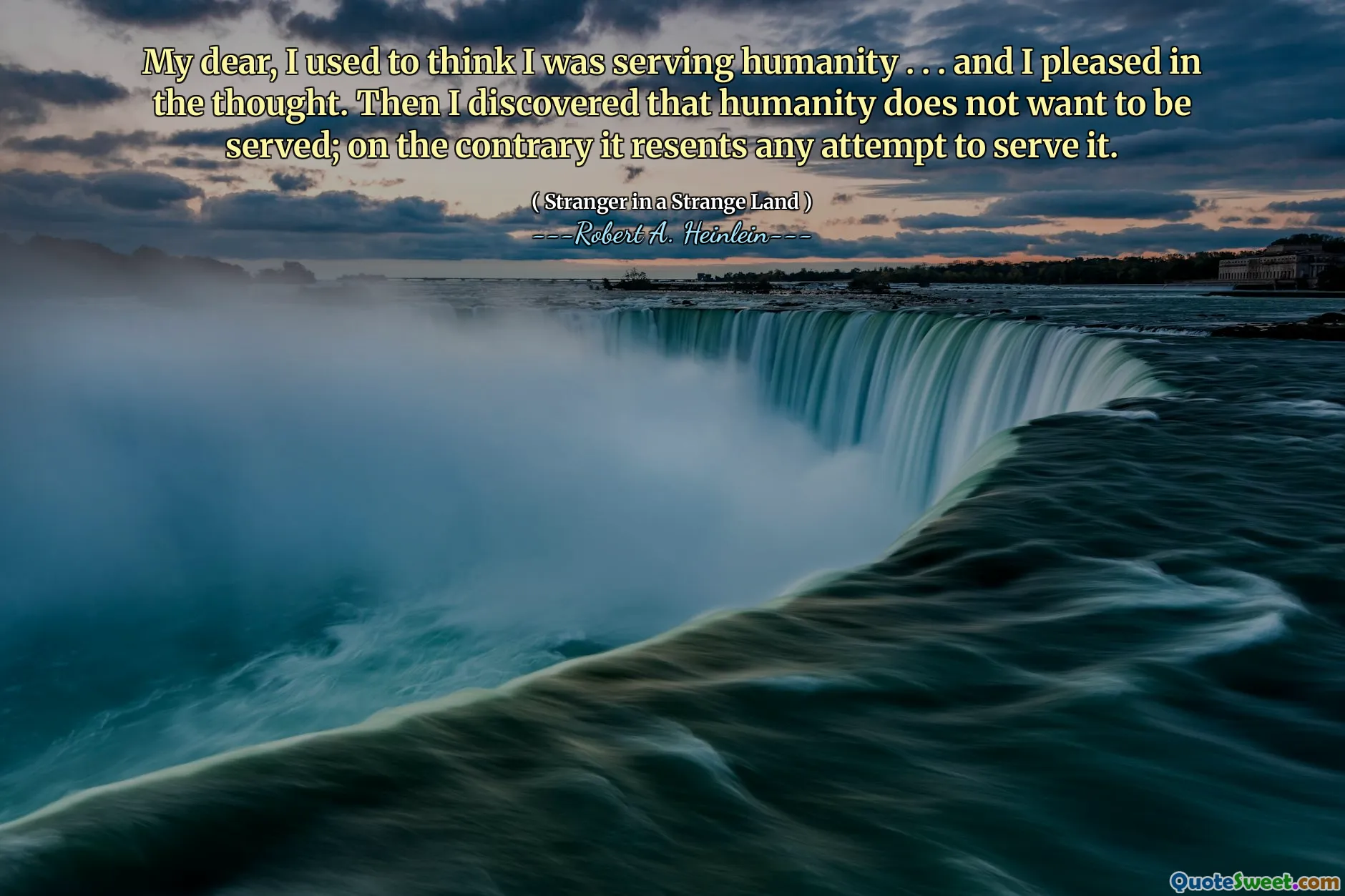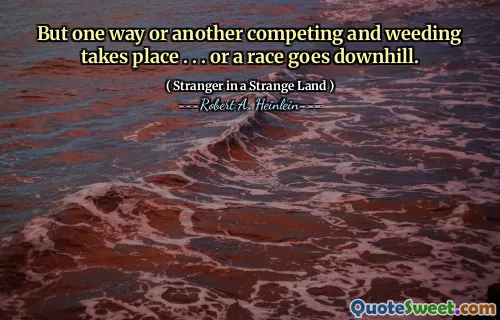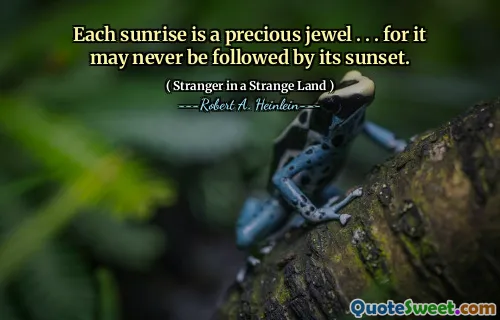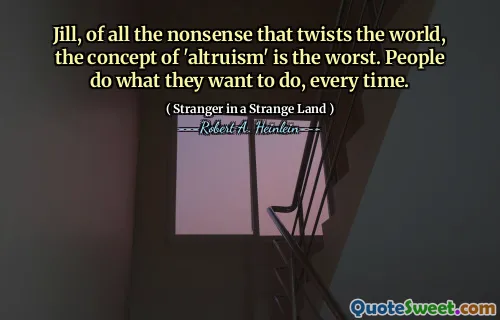
My dear, I used to think I was serving humanity . . . and I pleased in the thought. Then I discovered that humanity does not want to be served; on the contrary it resents any attempt to serve it.
This quote delves into the complex relationship between those who seek to help or serve others and the recipients of that help. It reveals a certain disillusionment—a realization that the act of serving can sometimes provoke resentment rather than gratitude. On a superficial level, service might appear inherently noble; however, the underlying psychology complicates this notion. Humans value independence, autonomy, and self-determination. When someone intervenes or seeks to help, it can be perceived as an implication of their inability to handle their circumstances, which might trigger defensiveness. This dynamic is especially pertinent in societal contexts where efforts to 'help' could be viewed as veiled critique or an infringement on personal agency. The quote underscores the importance of humility and awareness in acts of service; understanding the needs, desires, and boundaries of others is crucial to avoid unintended consequences.
Furthermore, it calls into question the assumption that helping others is always morally or ethically right. Genuine service requires empathy, respect, and a recognition of the individual's capacity for self-determination. It challenges the helper to consider whether their actions are truly beneficial or if they may inadvertently cause harm or resistance. Ultimately, this reflection opens the door for a more nuanced view of altruism—one that emphasizes listening, respect, and humility over presumption. Recognizing this reality can lead to more effective and compassionate interactions, fostering trust rather than resentment. It’s a reminder that the act of helping is not always welcome and must be approached with care and understanding, respecting others' independence and boundaries.











